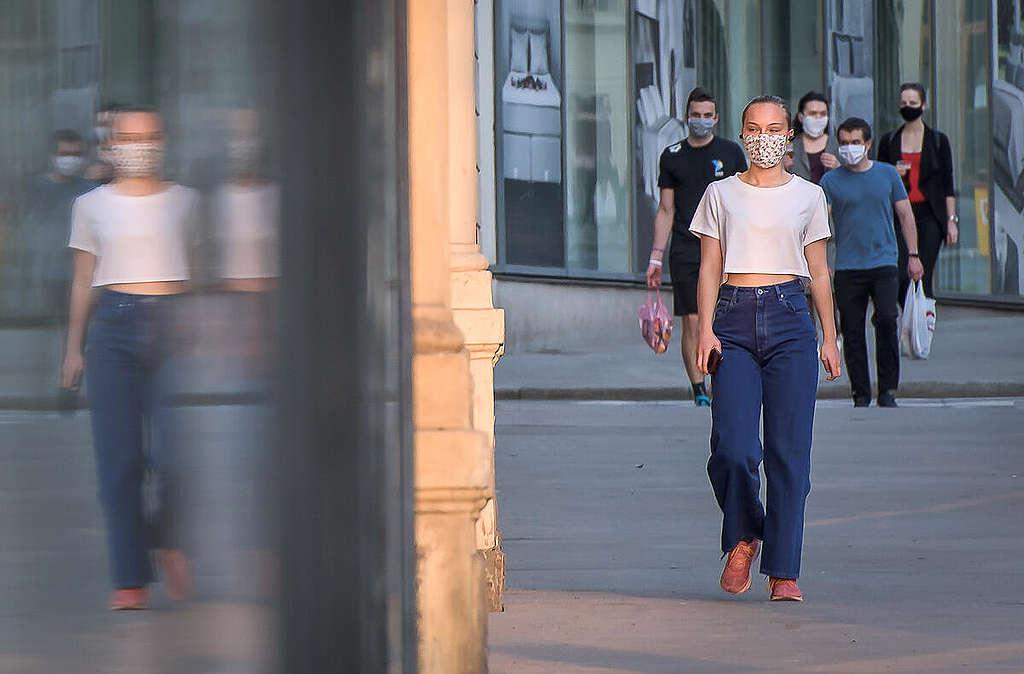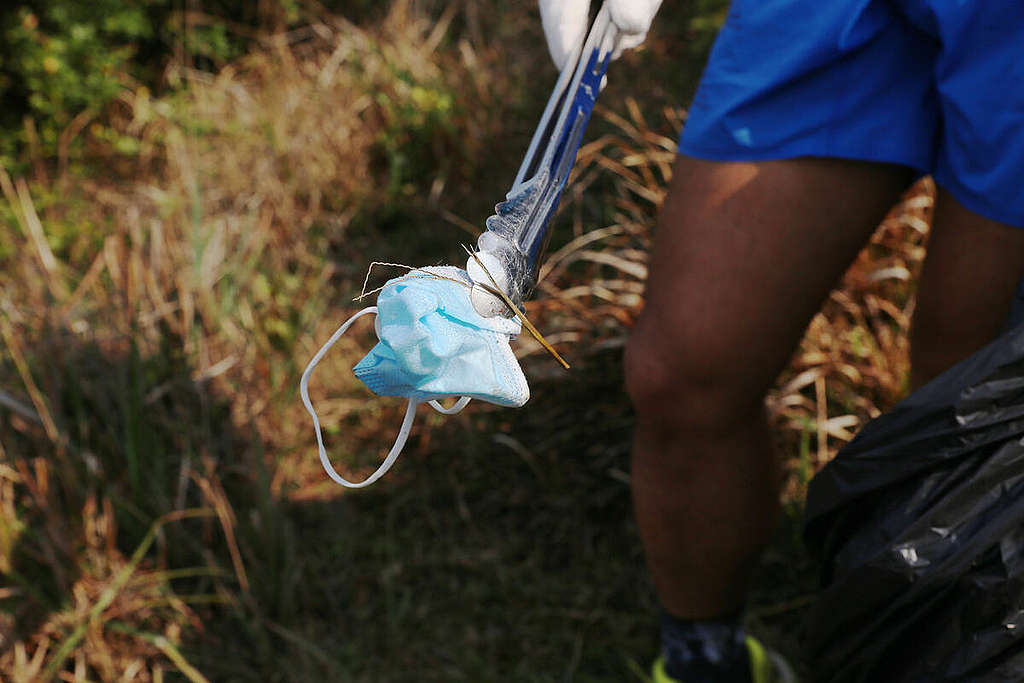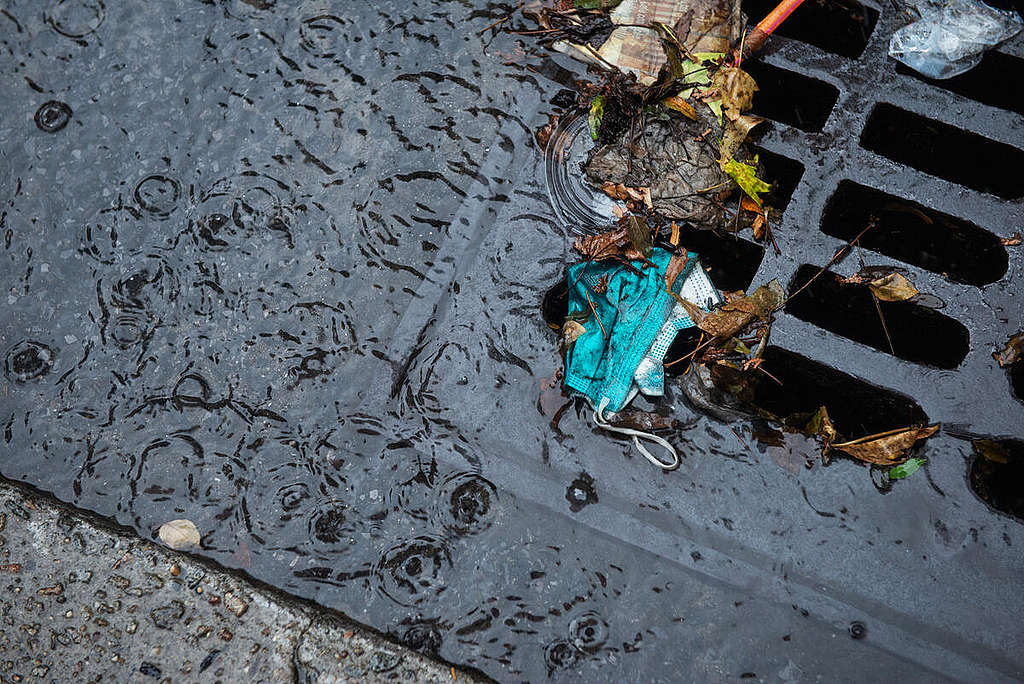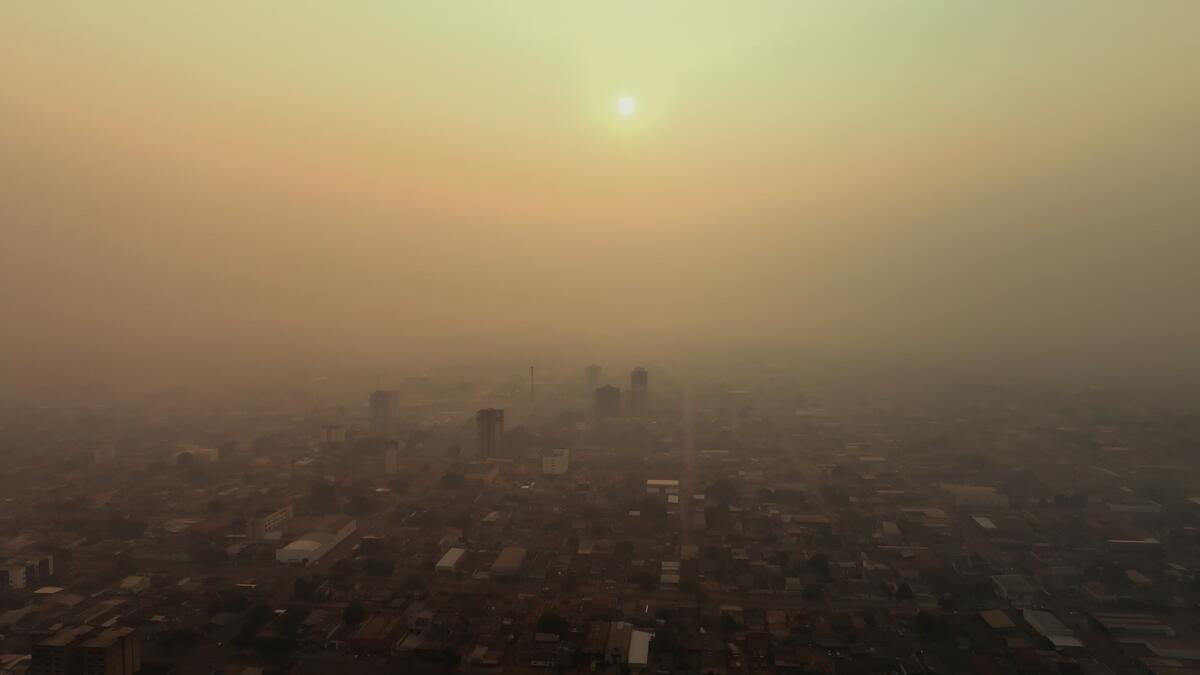Read the original version in traditional Chinese.
It’s been over six months since COVID-19 swept across and ravaged the world, and in an effort to contain this unprecedented outbreak, face masks have become a necessity. However, an increase in the use of disposable surgical face masks is also creating unwanted impacts on our environment, evidenced by piles of discarded face masks found near the coasts of Hong Kong, the United States, France, Mainland China, and Taiwan. Undoubtedly, face masks are now an environmental, as well as social, phenomenon.
5,500 metric tonnes of face masks were produced within 3 months
According to estimates by Greenpeace Taiwan, during the apex of the pandemic, from early February to mid May, Taiwan produced and used roughly 1.3 billion surgical masks. Assuming each face mask weighs 4 grams, that’s 5,500 metric tonnes of general waste generated within a span of three months. To put that figure into perspective, each garbage truck is capable of transporting 5 tonnes of trash at a time, so Taiwan produced enough face masks over a three-month period to fill 1,100 garbage trucks. Furthermore, according to existing rules and regulations regarding the disposal of surgical face masks, used face masks are “unrecyclable” due to the fact that they may be contaminated and could potentially lead to indirect infection and viral transmission if they enter the recycle system.

Face masks that were used by hospitals or other medical facilities are handled by class-A waste management companies, and disposed masks that are contaminated will be treated separately. As there are existing mechanisms overseeing the disposal of medical waste, used surgical masks from medical facilities are well supervised. However, the face masks that were worn by the general public fall into a grey area between “general waste” and “medical waste”.
Faced with the sheer amount of discarded face masks during the pandemic, Taiwan’s Ministry of Health and Welfare and Environmental Protection Administration have tried to advocate and educate the public on how to properly dispose of face masks via press conferences, official websites, and social media platforms. Meanwhile, littering penalties have also been raised from $1,200 to $3,600 New Taiwan Dollars, with a maximum fine of $6,000 New Taiwan Dollars. Moreover, both central and local governments have cranked up inspections, public service announcements, and other management tools regarding discarded face masks, while various government agencies and offices were encouraged to set up bins to collect used face masks.
Discarded face masks pose 4 major risks that could cause environmental and social impacts
1. Discarded face masks pose social and environmental risks, both short-term and long-term.
First, chemicals contained in the masks are a potential threat to our environment. In addition to non-woven fabric and activated carbon, medical face masks also contain large amounts of polypropylene (PP), which is a type of commodity plastic that takes a long time to degrade and releases a lot of toxic substances during the process. As all face masks sold on the market must go through rigorous quality testing, it’s fair to assume that these masks won’t break down easily, and their disposal will only create negative impacts on our environment and ecosystems.
2. Discarded face masks can become floating marine debris and impact the marine ecosystems.
According to RE-THINK Taiwan, a non-profit organisation that advocates and organises beach cleanup activities, discarded face masks have been showing up on almost all beaches in Taiwan since the beginning of the pandemic, with some face masks probably already in the ocean.
Though the Ocean Conservation Administration stated that it would collect and test those face masks to see if the coronavirus could survive in seawater, if left unaddressed, those face masks might be mistaken by some marine animals for food. Moreover, plastic particles released from the degradation of those face masks will also remain in the oceans and build up in the food chain for years to come, eventually becoming a detriment to human health.
3. Rivers and mountainous areas may become dumping grounds, which not only could hinder our pandemic response efforts to properly dispose of single-use masks, but also wreak havoc on wildlife.

Every year, 8 million tonnes of plastic waste from around the globe ends up in the oceans, with a bulk of it entering through the world’s rivers. According to statistics by the Environmental Protection Administration, 20,000 tonnes of waste and debris were cleaned up from the rivers, of which, roughly 2% was man-made, and of the 2%, 28.8% was plastic, mostly general waste thrown out by the public.
Even though the EPA does have management and surveillance systems in place that are aimed at preventing waste from entering rivers, we believe that it’s questionable as to whether that’s enough, especially when used face masks, which could potentially help spread the virus, are not being disposed of properly. What’s more, as more people look to rural areas as their preferred travel destinations during the pandemic, large amounts of discarded face masks are also being found in those areas, severely impacting local ecosystems.
4. From a social risk perspective, a spike in the amount of disposed waste might lead to an increase in the demand for incinerator capacity.
In the past, there have been instances of local residents protesting against waste incinerator. If we are facing the need of building new incinerators, whether it is for general or medical waste, they will not be welcomed by any neighbourhood.
At this point, it’s almost impossible to trace the sources of discarded face masks that have escaped into the environment, and it’s equally difficult to deploy preventive measures. In order to cope with the long-term effects of the pandemic, as well as to prepare for possible future outbreaks of other infectious diseases, Greenpeace Taiwan suggests that there should be more comprehensive guidelines and systems in place to govern the use and disposal of single-use personal protective equipment. Only then will we be able to strike a balance between public health and environmental sustainability.

We need your help in our fight to reduce plastic waste
Around the world, people are becoming more aware of the need to reduce our reliance on plastic products. In Taiwan, we have also been advocating plastic reduction and holding the government and businesses accountable by lobbying for relevant policies. We successfully advocated for a ban on plastic microbeads, hosted 47 different fairs and marathons with the theme of “plastic reduction,” set up the “Marine Debris Governance Platform” with the EPA and other local NGOs, and oversaw the passage and implementation of plastic reduction policies and plans.
However, our fight isn’t over yet, and our projects need your support. From businesses to the general public, let’s educate and raise more awareness to help realise the dream of a cleaner, better future that’s free of plastic pollution.
It starts with each of us using one less single-use product, starting today.
Jenny Yeh is a researcher at Greenpeace Taiwan.



